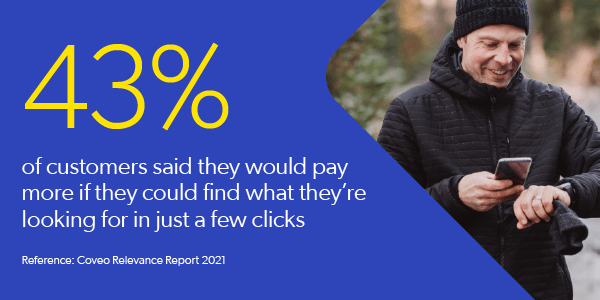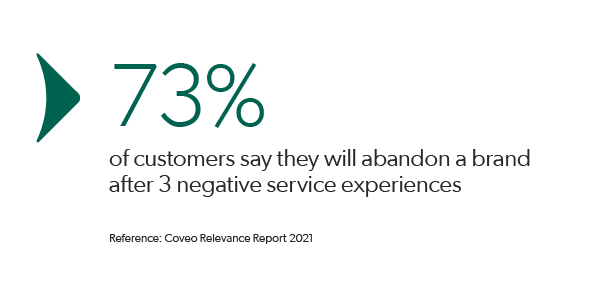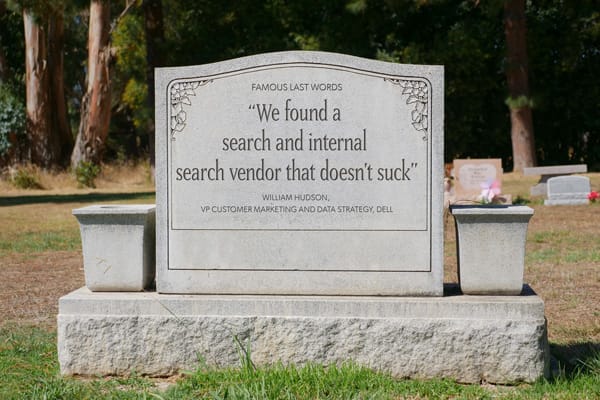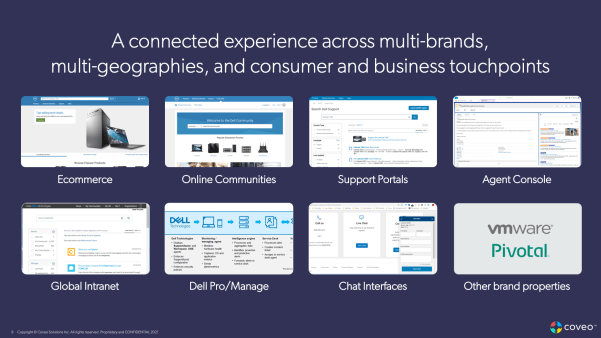Dell pioneered the “configure to order” approach to PC manufacturing in the 1980s. Today the company is a large multinational with several different brands servicing businesses around the world. Yet, their customer obsession and massive personalization efforts continue to this day.

“The customer is at the center of everything that we do,” says William Hudson, VP Customer Marketing and Data Strategy, “understanding and being able to get a holistic picture of our customers is job number one.”
However, this is no easy task. As with any large organization, data is spread throughout many systems.
According to Hudson, “Marketing generally tends to be the number one and maybe our toughest [internal] customer in terms of using that data and leveraging it. Once we have that, we have to make sure that all of the rest of the data in our stack can align to that customer data and can leverage off of it for useful business purposes to enable our customer journeys and experiences.”

Siloed customer data stored in multiple platforms is a problem for nearly every large enterprise. For a company like Dell, this is a business-critical problem. Coveo has become part of the data circulatory system of the company.
“We were trying to stitch together all of these best-of-breed point solutions,” noted Hudson, ”What became really apparent was our content was really locked in the silos underneath each of the application stacks. What our users, both internal customers and external customers, really wanted was the relevance that comes from unlocking the content out of all of the silos. There wasn’t really an easy way to do it until we kind of found Coveo.”

While Dell’s relationship with Coveo is what both companies would call a partnership, it had a true rom-com beginning — i.e., coincidence. “We actually found Coveo at a booth at Dreamforce. We found this technology partner that we’d never heard of before but sounded really interesting. It seemed like you have a high-quality product and search algorithms are really hard to develop, especially for internal search. We decided just to give it a try and see what happened. We deployed it in a limited use case, and we found out ‘like whoa,’ for once, we found a search and internal search vendor that doesn’t suck.”

From there, Dell’s use of Coveo grew organically, from internal search tools for their employees to customer-facing applications. According to Hudson, “It wasn’t an intentional choice. We have the skills and capabilities internally to develop the solution on our own, but because of how easy and effective Coveo is, it just kind of naturally grew into the default solution.”
It Takes a Village …

Dell and Coveo are continuing their journey together, bringing together data from multiple applications, systems, and throughout the company to provide relevant information to both Dell’s internal and external customers. Accomplishing this integration requires not just the Dell-Coveo partnership but working with Dell’s other partners and service providers.
Huson stressed the importance of this greater community. “One of the things that I really appreciate is Coveo is super willing to partner with our other partners too. It’s easy for us all to team together and to achieve results for our customers, which I think is super powerful and one of the key elements that has made Coveo so successful in the Dell story.
“Coveo hasn’t been shy about going to partner with Salesforce to do what we need to do or partner with ServiceNow when we needed. There was no territoriality, and we really appreciated that. It makes it really easy to get the relevance that we’re seeking for our customers.”
Expertise and Technology

Dell said it appreciates that Coveo’s technology is best of breed. They also have evidence that Coveo plays well with others. However, Dell is looking for more. “What we’re looking for from Coveo is to bring the expertise around relevance in search.” Coveo’s approach is to partner with all of our customers and bring the knowledge and experience that we have developed around our product and search relevance and the greater IT ecosystem required to accomplish it.
According to Hudson, “our technology partners have to give us the APIs and the access to be able to fit into a modern microservice-based cloud architecture.” Dell uses an architecture based on technology from their Pivotal subsidiary. To assist Dell in leveraging this technology to “control all aspects of the UI” on Dell.com, we developed a “headless” version of the Coveo JavaScript framework.
The Dell-Coveo story continues with new functionality, integrations, and customer experience being deployed continuously. Dig Deeper
Hear directly from Dell’s William Hudson on this Relevance 360 Rewind.


